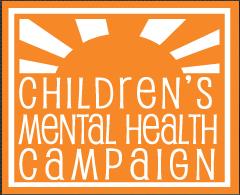What’s happening:
Efforts to support healthy development in children must include focused attention to children’s mental health and the prevention of adverse childhood events.
It is estimated that between 9.5% and 14.2% of children ages birth to 5 experience emotional or behavioral disturbance and research indicates that serious symptoms of mental health issues can begin to manifest in infancy and toddlerhood.
Mental health issues in children may be biologically-based, a reaction to an adverse childhood event, or the impact of postpartum depression.
Children with behavioral health conditions and those who are victims of abuse and neglect share a troubling set of expected life outcomes, including increased rates of suicide, serious chronic physical health conditions, substance use disorders, and early onset of sexual activity. Not surprisingly, these children also struggle to do well in school, both academically and socially.
MSPCC targets its children’s mental health public policy goals to support existing efforts that have proven effective, improving capacity for early identification and treatment, and reforming practices which inhibit school success. MSPCC is a founding member and the coordinating agency of the Children’s Mental Health Campaign, whose leadership includes Boston Children’s Hospital, Parent Professional Advocacy League (PPAL), Health Care for All (HCFA), Health Law Advocates, and Massachusetts Association for Mental Health (MAMH). Through this coalition of more than 165 organizations, we champion children’s mental health access and quality.
What we’re doing:
ADVOCACY
Strengthening Behavioral Health Supports in Schools
Children spend a significant portion of their lives in school. As a result, school personnel are often the first to identify a behavioral health need and schools are increasingly the best location to provide behavioral health services. Studies show Comprehensive School-Based Behavioral Health Systems promote safety, academic success, and improved attendance rates, while helping to reduce special education referrals, school disciplinary actions, emergency room visits, hospitalizations, and the prevalence and severity of mental illness. We are supporting several bills to increase behavioral health supports in schools. Learn more here.
Preventing adolescent substance use
Massachusetts legalized adult-use recreational marijuana in 2016. Research suggests that when marijuana is legalized, risk perception decreases and youth among youth increases. We are working to ensure that revenue from the sale of recreational marijuana goes to support evidence based and evidence informed adolescent substance use prevention and education programs and services. Learn more here.
Watch The Power of Prevention: Using SBIRT with Young People video to learn more about Screening, Brief Intervention, and Referral to Treatment (SBIRT) and our work in substance use prevention here.
Improving funding for children’s mental health
We also work to ensure that an array of programs and services for children with behavioral health needs are adequately funded in the state budget. Learn more here.
SPECIAL PROJECTS
Strengthening and Expanding the IECMH Workforce
It is critical that all children across the Commonwealth have equitable access to infant and early childhood mental health (IECMH) supports and services. Together with the Massachusetts Association for Infant Mental Health (MassAIMH), MSPCC will bring to Massachusetts a nationally-established IECMH professional credentialing process to help strengthen and professionalize the IECMH workforce.
Expediting Access to Mental Health Services for DCF-Involved Children
Thousands of children involved with the Massachusetts Department of Children and Families (DCF) have experienced abuse or neglect, or experienced challenging family circumstances that can negatively impact their healthy development. MSPCC has partnered with DCF, the Massachusetts Association for Infant Mental Health, Massachusetts Head Start Association, the Home for Little Wanderers, and Massachusetts Alliance for Families to develop and pilot a system for prioritizing delivery of evidence-based, trauma-focused screening, assessment, and interventions to DCF-involved infants and toddlers. Learn more here.
What you can do:
Sign up today for action alerts from the Children’s Mental Health Campaign! Receive alerts on important legislation and we will send you the information you need to take action by writing or calling lawmakers on behalf of vulnerable children.
